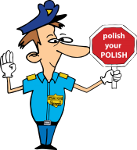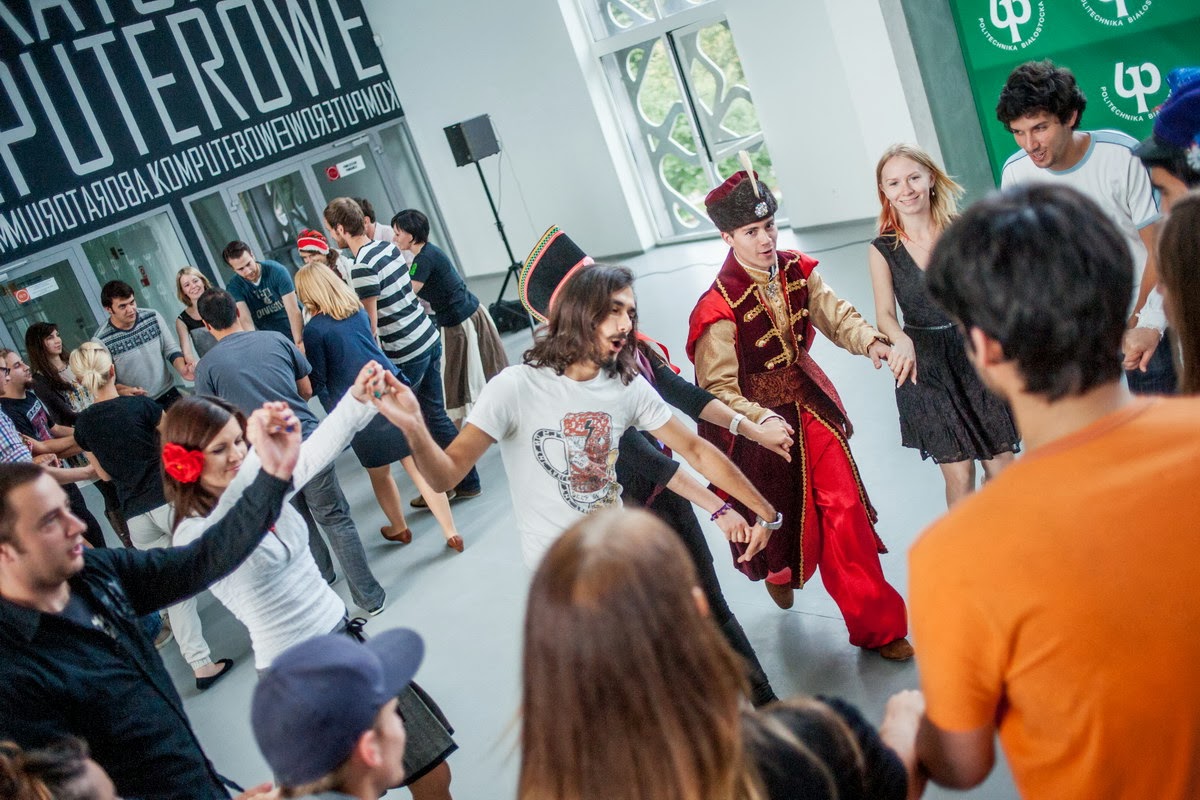EILC - Erasmus Intensive Courses of Polish Language at Białystok University of Technology
The courses were organized between 26 August - 21 September 2013 by Foreign Language Center. We hosted 32 students from EU and candidate countries, such as Germany, Spain, Czech Republic, Portugal, Slovenia, Turkey, Romania, Estonia and France. They all came to Poland long before the beginning of academic year to learn basics of Polish language and get acquainted with our culture.
LANGUAGE COMPONENT:
Intensive language courses of Polish language aim at:
a) developing in students the following language and cognitive skills:
- basic ability to communicate in typical everyday situations, eg. in a shop, on the bus, at the railway station, asking the way, ordering meals, etc.
- the acquaintance with Polish art, culture, contemporary socio-economic and political problems and elements of geography and history
- raising interest in Polish culture and language
b) teaching elements of Polish cooking ('pierogi' workshop), dancing (practicing basic steps of polonez, oberek, krakowiak), handcraft (pottery workshop, icon painting workshop)
b) integration of overseas and Polish students through their participation in attractive cultural and sightseeing programme
c) presenting the system of higher education in Poland
d) promotion of the Polish language, culture, customs and manners.
Methodology of teaching Polish language was based on communicative approach. Students developed all four language skills (speaking, listening, reading and writing) simultaneously. Students worked in small groups, in pairs or with the whole class, and individually as well. The working language in the classroom was Polish, but if necessary, the instructions were repeated in English.
CULTURAL COMPONENT:
The main idea of the cultural component was to show the EILC participants multicultural Podlasie. Our assumption was that for many of the students trips around Białystok and Podlasie would be the only opportunity to get acquainted with the local peculiarities of our multicultural society. Thus, in our predominantly Christian culture, they came across Orthodox religion and customs, Muslim faith in local (Tatar) edition and remnants of Jewish culture.
To present it, we organized several walks and day-long trips:
- Trips exploring multicultural Podlasie:
a/ Tatar Route: exploring the rich cultural heritage of the neighbourhood may provide visitors with many surprises, including discovering the traces of Muslim presence. Podlasie Tatar Route, with villages like Bohoniki and Kruszyniany, is a unique opportunity to get to know the religion and culture of Polish Muslims, and of course, their cuisine.
b/ Jewish Route: visiting synagogues of Podlasie, encountering the history of Polish Jews.
c/ Orthodox culture, visiting orthodox churches, monasteries and Museum of Icon Paintings in Supraśl
- 2 guided tour of Białystok; The 18th century Branicki Palace with Baroque Gardens, Catholic and Orthodox Churches, Zamenhof’s Centre, the Historical Museum and dozens of other attractions.
- Białowieża National Park - the last major refuge of the European bison as well as home to many other rare species and 400-year-old oaks. Białowieża National Park is a UNESCO World Heritage Site and Biosphere Reserve. In the Park there are several tourist attractions like European bison Show Reserve, where visitors can see many animals, especially: Polish Horses, beefalo (a hybrid of domestic cow and European bison), and the Emperor of the Forest – the European bison. Website: http://bpn.com.pl/
- The sites of natural beauty: The Biebrza River Valley and the Narew River Valley (the former one is known for its Europe’s largest peat bogs and the habitat for elks, wolves, beavers, otters and other wild animals. The Narew River is often called the “Polish Amazon” because of its meandering riverbeds forming a network of swampy streams and channels, making the valley one of the best preserved ecosystems in Europe. Kayak would be the best way to see both rivers’ picturesque routes).
Apart from that, participants could taste flavours of the Podlasie Region, as we dined in restaurants specializing in traditional local cuisine.
ORGANIZERS:
EILC team consists of 8 people: Alina Jabłońska Domurat (coordinator and teacher) and Elżbieta Sieńko - authors and main organizers, Magdalena Opacka, Urszula Malinowska, Edyta Kiersnowska and other Polish language teachers: Maria Ambrożej, Barbara Borbacz-Gancarz and Wojciech Rogalski.
Also ESN PB (Erasmus Student Network at Białystok University of Technology) students were actively participating in entertainment and other activities.


